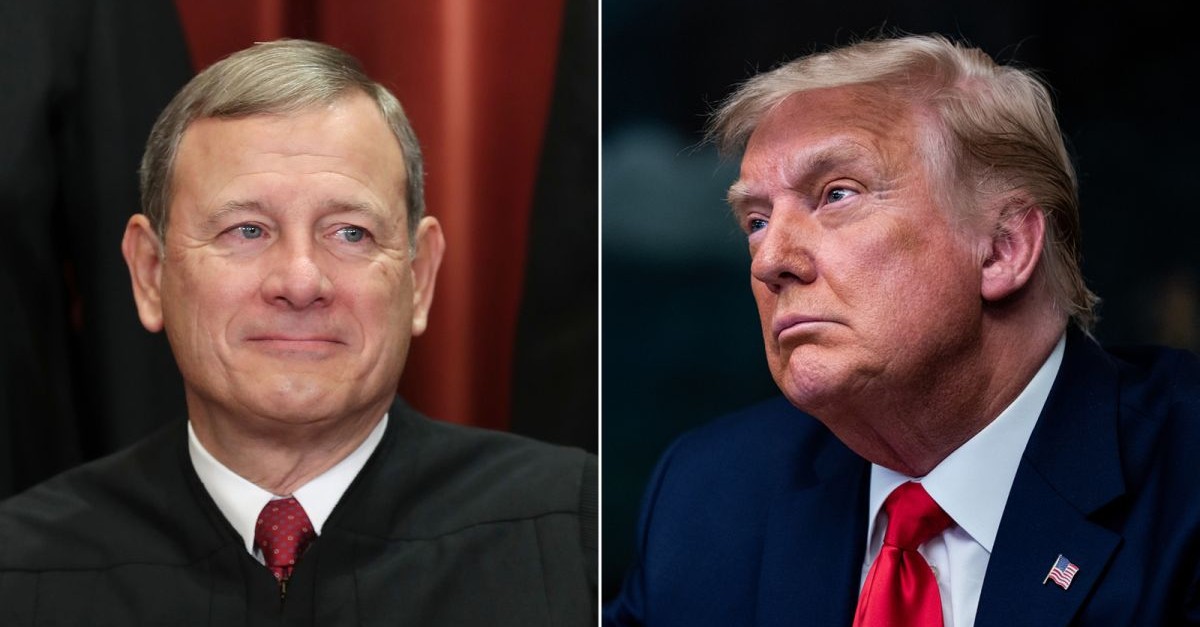OPINION: This article may contain commentary which reflects the author's opinion.
The U.S. Supreme Court has delivered its long-awaited ruling on the Trump administration’s “Remain in Mexico” policy.
The case involved the Biden administration trying to end the Trump-era policy, which required asylum-seekers to wait in Mexico as their cases make their way through U.S. immigration courts. The Trump administration sent more than 70,000 asylum-seekers to Mexico under the policy.
In a 5-4 ruling, the Court ruled that President Joe Biden’s administration can terminate the Trump-era immigration policy.
Conservative Justices John Roberts and Brett Kavanaugh joined liberal the justices in the decision.
Here is the opinion from John Roberts in Biden v. Texas: https://t.co/zuSZpiDQP0. Roberts is joined by the three liberals + Kavanaugh. Thomas, Alito, Gorsuch, and Barrett dissent.
— SCOTUSblog (@SCOTUSblog) June 30, 2022
“The case reached the Supreme Court after a federal district judge in Texas last year ruled that the Biden administration violated immigration law by not detaining every immigrant attempting to enter the country. U.S. District Judge Matthew J. Kacsmaryk ordered the Biden administration to restart the Migrant Protections Protocols, also called “remain in Mexico,” which the Trump administration first implemented in January 2019 and Department of Homeland Security Secretary Alejandro Mayorkas canceled in June 2021,” the Texas Tribune reported.
“That decision led Texas and Missouri to sue the Biden administration in April 2021, arguing that canceling MPP violated administrative law and that without the program, human trafficking would increase and force the states to expend resources on migrants — such as providing driver’s licenses, educating migrant children and providing hospital care. The Biden administration argued it has the discretion to end the program and that it was not an effective way to deal with migrants seeking asylum,” the outlet added.
During arguments before the Supreme Court earlier this year, Justice Brett Kavanaugh suggested he supported keeping the policy in place.
Kavanaugh asked Solicitor General Elizabeth Prelogar, who represented the Biden administration, whether there was any indication that Congress, when it last rewrote the law in 1996, knew that hundreds of thousands of people would be released in the U.S. while they wait for their hearings.
Texas Solicitor General Judd Stone argued before the Court that immigration law states that the federal government must return every immigrant to Mexico if they can’t detain every single one attempting to enter the country.
“MPP, as implemented, reduced the number of violations. It did not fully satisfy the executive’s mandate,” Stone told the justices. “But so far as it went, it complied with the executive’s obligations to return rather than detain the aliens enrolled in MPP.”
Texas Attorney General Ken Paxton and Missouri Attorney General Eric Schmitt, who filed the lawsuit jointly in Texas, spoke earlier this year about the case and the arguments made before the justices.
“I really trust that we did the best we could today,” Paxton said. “I really believe we’re going to get a good result with this, and hopefully from the consequences of this huge loophole that everyone knows is a loophole.”
Kevin Johnson, an immigration law expert and professor at the University of California, argued the case concerns how much discretion the executive branch has in managing U.S. border enforcement policies
“Historically, there’s been a great deal of deference given to the president and the administration when it comes to how to enforce the borders,” he said. “And now we’ve got a new administration that wants to unravel or dismantle some of the Trump administration’s policies, and the question is how and what discretion does the executive branch have to do that.”
